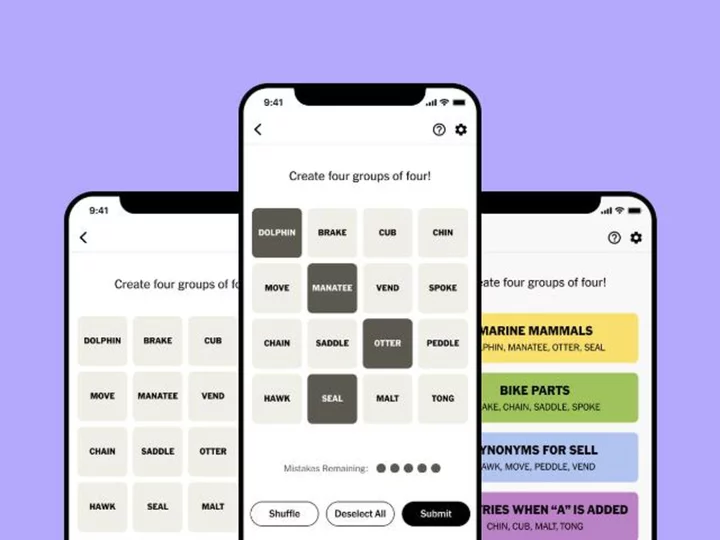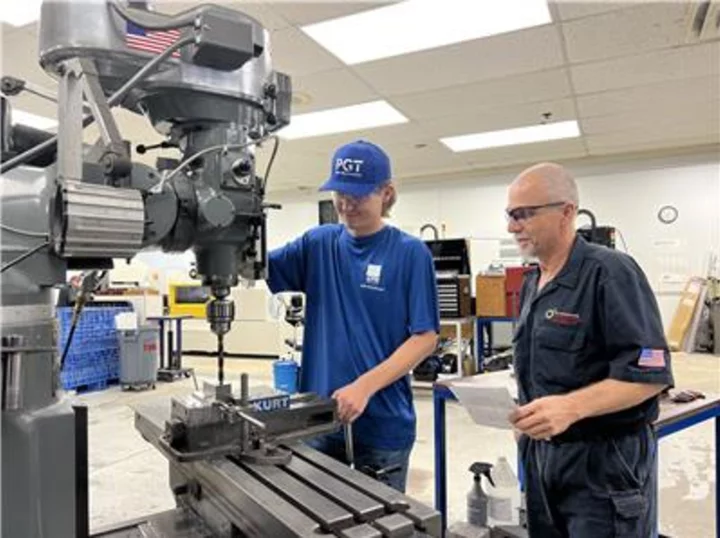The New York Times found instant success with Wordle. Now it might have a new hit on its hands.
A new puzzle called Connections is officially joining the newspaper's portfolio of games this week, following a successful summer testing phase where it became the Times' second-most played game behind Wordle despite minimal promotion. Players will see Connections appear in the Times' Games app and in the news app under the Play tab beginning this week.
Connections, which also can be played on desktop and mobile web, is a word association game that presents players with 16 words and challenges them to group them together in four different topics. Players have four chances to solve the puzzle before losing.
Jonathan Knight, head of Games at the Times, told CNN that Connections has been in development for a year, with the games team concocting the idea at a "Game Jam" (think: a hackathon, but for games). After some fine tuning of the idea, Connections launched in beta in June with the puzzle only being findable via search or in the menu of other games
It was an instant hit, with millions of people playing it weekly, Knight said. Connections is "very approachable, and it's very easy to understand." The puzzle is also one of the Times' "most editorially driven games" with the Connections' editor purposely thinking of clever words that might appear to be grouped together but actually aren't related.
"It's that human-made component with the puzzle-constructor going up against them everyday and trying to outwit them as they try to outwit you," Knight said. "I think that is kind of magic."
Players won't see any changes to Connections once it leaves beta on Monday, a sign that it "resonated with people right away," Knight said. The only tweak the Times made to the game was clarifying the instructions during the two-month beta period.
Growth of games
Games and Times' other apps like Cooking have been an essential part of the Times' strategy to boost revenue beyond advertising. Subscription revenue from digital products increased nearly 7% percent to $409.6 million in the second quarter of this year, while advertising revenue was flat. The Times currently has 9.1 million digital-only subscribers.
Wordle continues to be the biggest game, with its popularity having a halo effect on launching new games and adding subscribers. Players playing other games other than Wordle "experienced record growth over the last year," Times CEO Meredith Kopit Levien said in a recent earnings call. "The giant audience we now have for Games continues to power starts for both our Games subscription and the bundle."
Games helps the Times grow because news is a "crowded category and the market for subscriptions is limited, largely by ideology, and advertising against news is a declining market," Brian Morrissey, author of the media newsletter the Rebooting told CNN.
Although the Times is "already capturing a large part of the US news subscription market, it can grow more internationally," Morrissey said. "Games have proven a powerful way to acquire new customers that might be open to a bundle with news but who otherwise wouldn't subscribe to just news."
Times' Games app, which costs $4.99 per month, has been downloaded 11 million times globally since January 2019, according to Sensor Tower data, with the number of downloads soaring by 76% year over year. However, growth has slowed to 4% when compared quarter over quarter.
A hit like Connections could boost that. Knight said "never say never" if Connections could surpass Wordle, but he doesn't compare the success of a Times' game to Wordle, since that was a "viral phenomenon that brought the whole world together, and you don't see those things very often in a lifetime, much less one year later."









